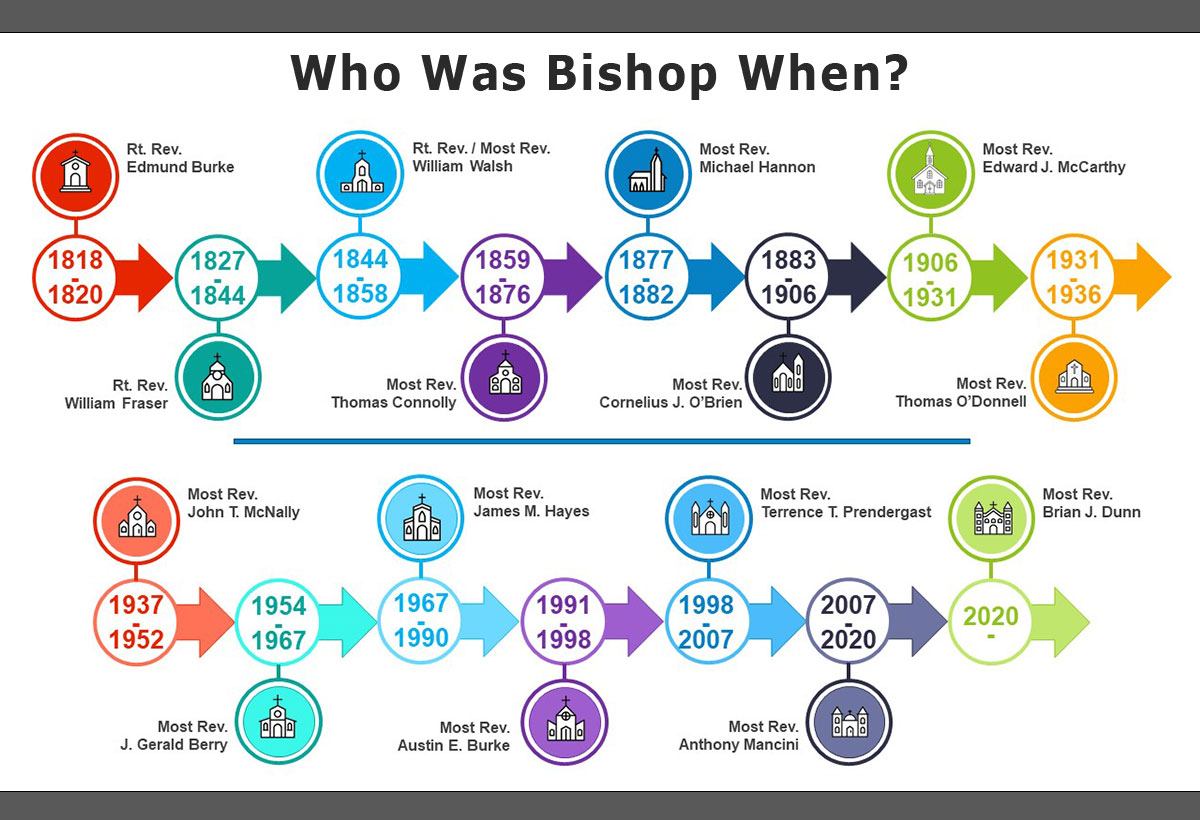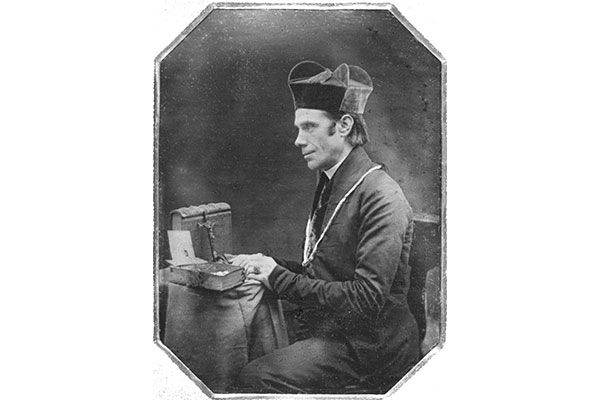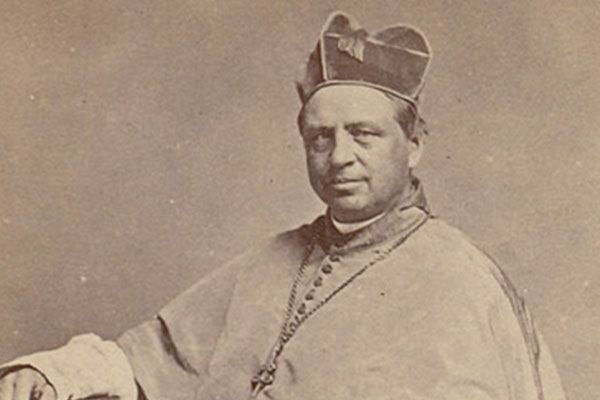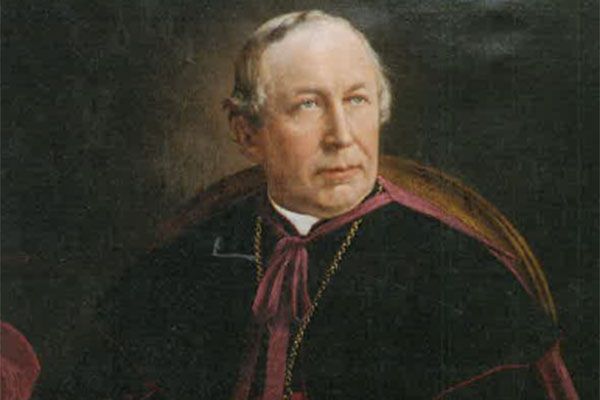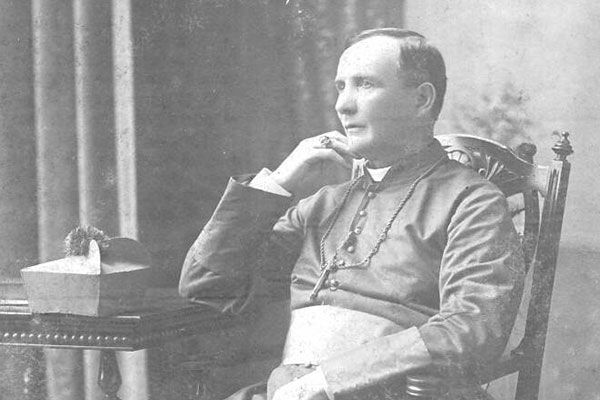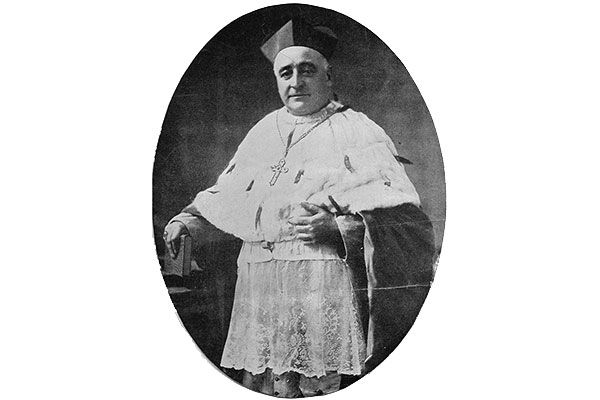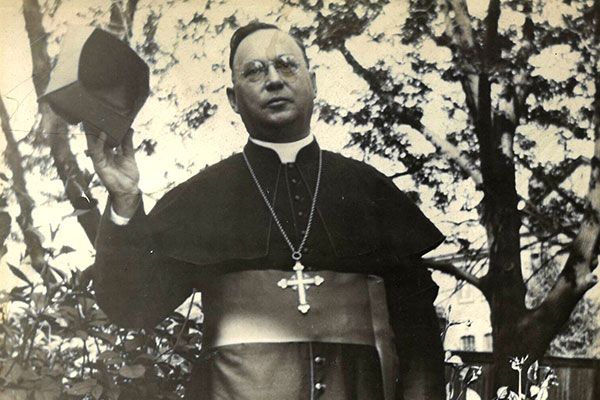Rt. Rev. William Walsh
Bishop of Halifax and First Archbishop of Halifax
1844-1858
William Walsh was born in Waterford, Ireland, on Nov. 7th, 1804, the oldest of Joseph Walsh’s 14 children. In his childhood, William had aspired to be a Priest. During his early life in Waterford, he attended St. John’s College and the Catholic Seminary at Maynooth College. He later was ordained at Holy Trinity Church in Waterford, on the 25th of March, 1828.
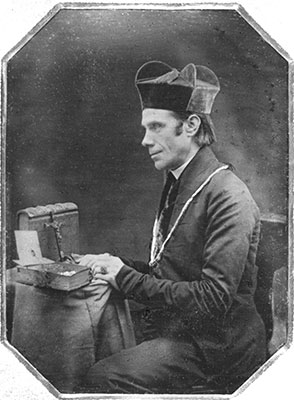 William Walsh was born in Waterford, Ireland, on Nov. 7th, 1804, the oldest of Joseph Walsh’s 14 children. In his childhood, William had aspired to be a Priest. During his early life in Waterford, he attended St. John’s College and the Catholic Seminary at Maynooth College. He later was ordained at Holy Trinity Church in Waterford, on the 25th of March, 1828.
William Walsh was born in Waterford, Ireland, on Nov. 7th, 1804, the oldest of Joseph Walsh’s 14 children. In his childhood, William had aspired to be a Priest. During his early life in Waterford, he attended St. John’s College and the Catholic Seminary at Maynooth College. He later was ordained at Holy Trinity Church in Waterford, on the 25th of March, 1828.
During this period and across the Atlantic in Halifax, Irish Catholics were experiencing a dilemma. The Bishop at the time, Bishop William Fraser, was heavily criticized by the local Irish Catholics for his treatment towards them, or rather his negligence. Among several other problems, Fraser was rarely ever seen in Halifax and stayed mainly in his home town of Antigonish. Fraser’s duties in Halifax were largely carried out by the Vicar General, Father John Loughnan. The entirety of Nova Scotia was one Diocese during this time, so while Bishop Fraser was still technically within the correct jurisdiction, it was very odd for him to not be found at Halifax, the Seat of the Vicarate. Feeling neglected and perceiving an anti-Irish prejudice, Halifax’s Irish Catholics wrote to Rome with their grievances. In response, the Holy See appointed an Irish representative, Rev. William Walsh, as coadjutor Bishop.
On 14th February, 1842, Walsh was consecrated Bishop of the suppressed Diocese of Maximianopolis by Archbishop Daniel Murray in Dublin, and set out for Halifax. Even before he arrived on 16th October 1842, Walsh was receiving criticism in the form of letters from Nova Scotian priests, as correspondence from Rome informing Fraser of Walsh’s appointment had never arrived. Fraser only found out that Rome was sending someone to assist him through a newspaper article. He took offense, feeling that the Holy See did not care to deal with him personally. Bishop William Fraser was highly regarded by most in the Nova Scotian Diocese, and so Fraser’s displeasure amassed a lot of support. This anger would be largely focused at Walsh himself, who was yet to be fully informed on the situation. When Walsh realized the direness of his position, he wrote the Holy See asking them to recall him, to no avail.
For the next year Walsh lived out of a Hotel as 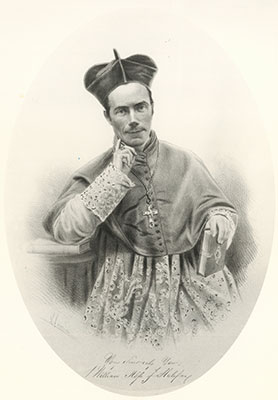 Father John Loughnan, Vicar General and a staunch supporter of Bishop Fraser, would not allow him to stay on church property. Regardless, Walsh still pressed on, attending to his duties. Already tense when Walsh arrived, the situation only got worse as time went on. Among many other incidents, one notable act of malice towards Walsh occurred on the night of July 23rd, 1843. His Chaplain, Rev. Thomas Louis Connolly, who had joined him from Ireland, was prohibited from practicing any clerical functions by Father Loughnan. The act was one of many done clearly to spite and diminish Walsh’s office. After months of deliberating, Walsh set off for Rome on the 3rd of March, 1844, to appeal for assistance in solving the issue. After several more months, Walsh and Fraser came to an agreement, and on 2nd of September, 1844, the Vicariate Apostolic of Nova Scotia was split in two by Rome. Walsh would become the Bishop of Halifax, and Fraser would become the Bishop of Arichat.
Father John Loughnan, Vicar General and a staunch supporter of Bishop Fraser, would not allow him to stay on church property. Regardless, Walsh still pressed on, attending to his duties. Already tense when Walsh arrived, the situation only got worse as time went on. Among many other incidents, one notable act of malice towards Walsh occurred on the night of July 23rd, 1843. His Chaplain, Rev. Thomas Louis Connolly, who had joined him from Ireland, was prohibited from practicing any clerical functions by Father Loughnan. The act was one of many done clearly to spite and diminish Walsh’s office. After months of deliberating, Walsh set off for Rome on the 3rd of March, 1844, to appeal for assistance in solving the issue. After several more months, Walsh and Fraser came to an agreement, and on 2nd of September, 1844, the Vicariate Apostolic of Nova Scotia was split in two by Rome. Walsh would become the Bishop of Halifax, and Fraser would become the Bishop of Arichat.
Walsh continued to work, largely in Halifax, until his death. With far less drama standing in his way, he was able to lead several notable achievements, including the creation of Holy Cross Cemetery and the construction of the Our Lady of Sorrows Chapel, built in one day. Walsh made close ties to the Mi’kmaq; he confirmed Jacques-Pierre Paul as Grand Chief, who received a medal from Pope Pius IX1. As well, Walsh helped to produce and distribute Catechism’s written in phonetic Mi'kmawi'simk.
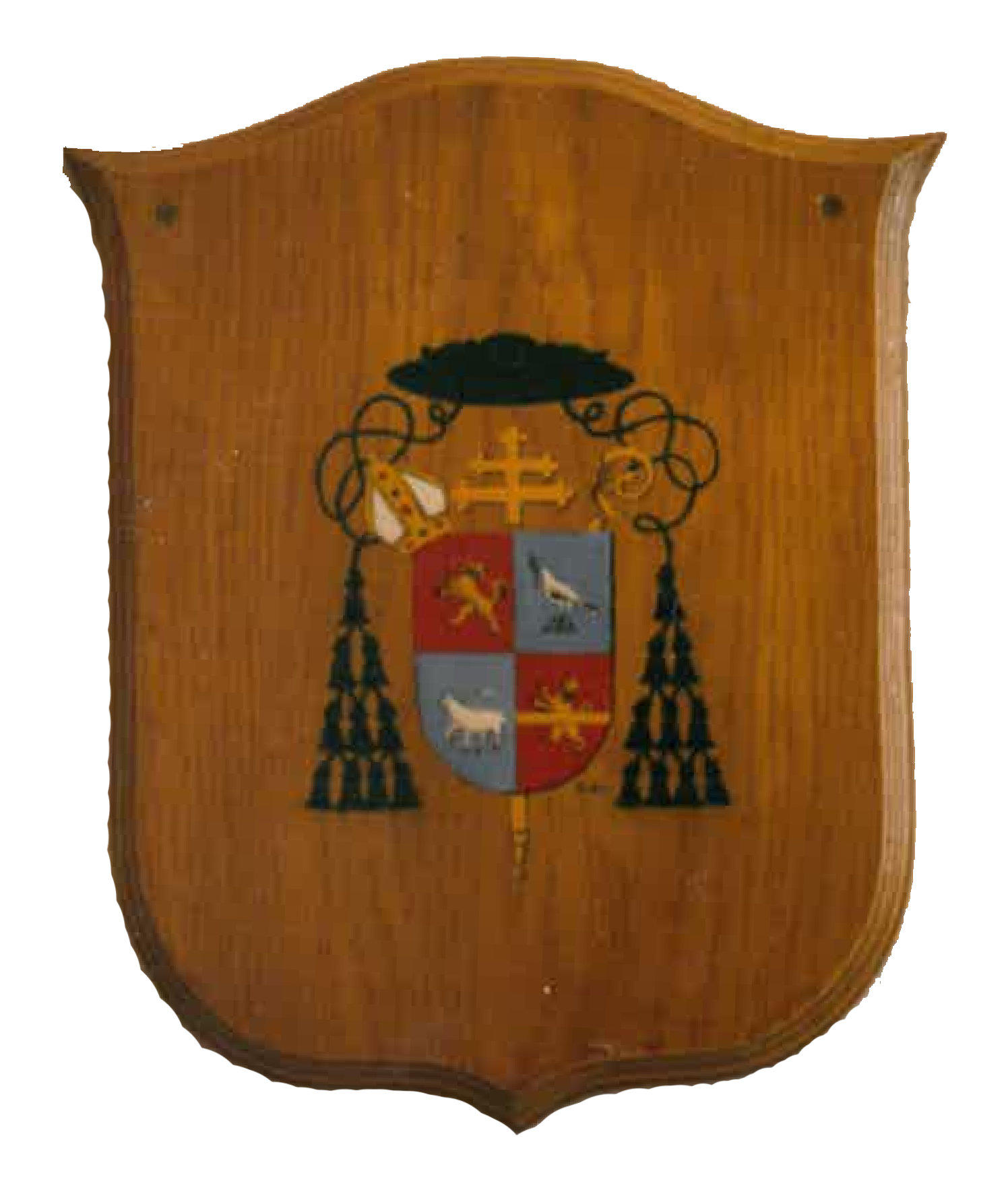 After some time, Bishops Walsh and Fraser were able to lay the tensions between them to one side and form a cordial working relationship. Later, when Halifax was raised to the status of Archdiocese on the 4th of May, 1852, William Walsh became it’s first Archbishop.
After some time, Bishops Walsh and Fraser were able to lay the tensions between them to one side and form a cordial working relationship. Later, when Halifax was raised to the status of Archdiocese on the 4th of May, 1852, William Walsh became it’s first Archbishop.
Integral to the creation of many aspects of the Halifax-Yarmouth Archdiocese as it is known today, William Walsh has been called “The Man who Set the House in Order.” On the night of 10th of August, 1858, after suffering a “long and painful illness”, Walsh passed away. His funeral precession was a large one, and he was carried from St. Mary’s Cathedral all the way to the same Holy Cross Cemetery he established. He had earned such respect among members of the Indigenous community, that many of them walked alongside the pallbearers in procession2.
Citations
1 http://www.biographi.ca/en/bio/peminuit_paul_jacques_pierre_12E.html Accessed 27 Sept. 2022.
2 Acadian Recorder, 14th August, 1858
Sources:
http://www.dib.ie/biography/walsh-william-a8903. Accessed 27 Sept. 2022.
http://www.biographi.ca/en/bio.php?id_nbr=4239 Accessed 27 Sept. 2022.
Hanington, Jeffrey Brian. Every Popish Person. Archdiocese of Halifax, 1984.
The William Fraser fonds, Archdiocese of Halifax-Yarmouth Archives.
The William Walsh fonds, Archdiocese of Halifax-Yarmouth Archives.
The photograph collection, Archdiocese of Halifax-Yarmouth Archives.
More about Rev. William Walsh
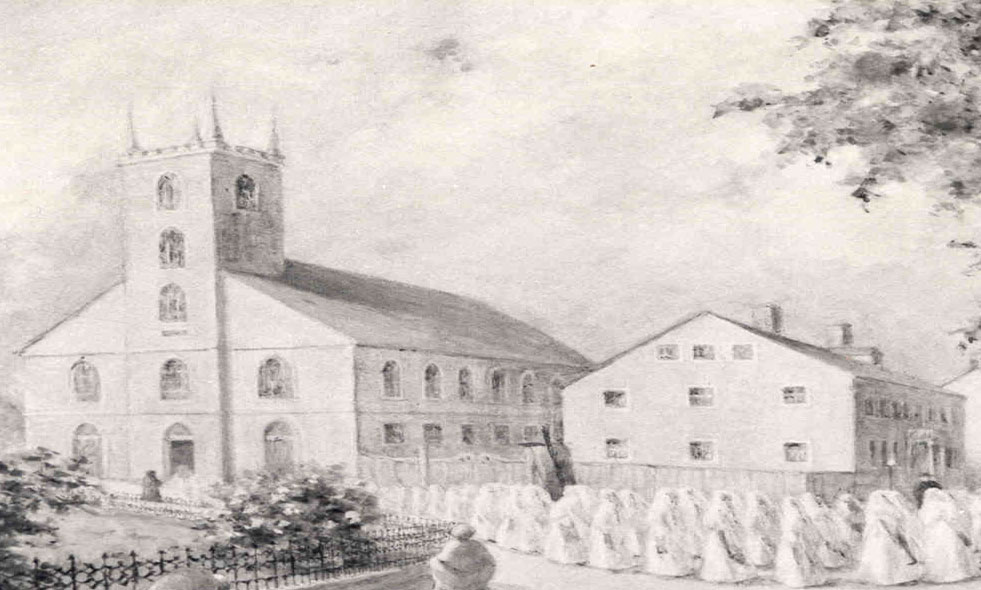
The period prior to Rev. William Walsh’s work in Halifax was a hard one for many Irish Catholics. The Bishop at the time, Rev. Fraser, was known to ignore Halifax and its large population of Irish Catholics. Fraser spent most of his time in his home town of Antigonish, despite the seat of the Bishop being in Halifax. As complaints were made against Fraser, Rome decided Halifax needed help. It was decided that an Irishman, William Walsh, would be sent to potential amend the situation. Through hardships, doubt and even an attempt to quit, Walsh managed to quell many issues of the Vicariate Apostolic of Nova Scotia and become the first Archbishop of Halifax.
Archives Contact
Sharon Riel
Archivist - Halifax Office
Archdiocese of Halifax - Yarmouth
(902) 429-9800 ext 314
